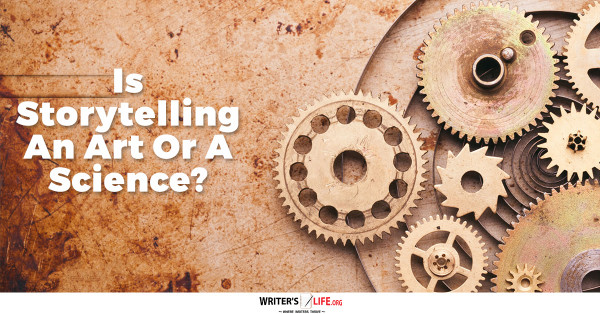- How To Tackle Jealousy In Creative Writing
- Common Submission Mistakes
- How To Stop Your Blog Becoming Boring
- The One Thing Every Successful Writer Has In Common
- How To Make Yourself Aware Of Publishing Scams
- Why Almost ALL Writers Make These Grammar Mistakes At Some Point
- 5 Tips For Authors On How To Deal With Rejection
- Top Mistakes to Avoid When Writing a Novel
- How to Avoid Common New Writer Mistakes
- 10 Mistakes New Fiction Writers Make
Is Storytelling An Art Or A Science?

Many people believe that writing a novel is a creative art form, and without natural creative ability it is a near impossible task.
However, engineering a novel is a process, and writing is a skill that can be taught and learnt. As with any skill, some people may have an aptitude for it, but does that mean that those who find writing more laborious, or whose minds work in a more ordered, structured fashion, can’t become great novelists too?
To create a great piece of writing there are several important parts, rules even, that must be adhered to in order to make it work.
Even the most complex and creative stories all have a beginning, a middle and an end. They include characters, conflict, and action. Their purpose is to engage and hold a readers interest, to move them in some way.
If you put your readers at the heart of what you write then it is possible to learn what resonates with them, and therefore write accordingly. This is the science of writing novels.
Nowadays there are a plethora of writing workshops, courses, forums and textbooks which can be studied in order to understand the different elements that must be included in a story to make it work. If you study these, and research your genre, strive to understand your audience and what makes them tick then you can, in theory, develop a story which will appeal to them and keep them coming back for more.
It is rare that a writer will sit down and begin to write with no idea or plan of what they intend to write about. Just as a painter doesn’t start by simply flinging paint onto the canvas. Even the most abstract of art is carefully planned, the paint selected, the colours chosen, the end goal firmly in mind.
But then there are some writers who choose to write more organically, to start writing without knowing what will happen - is their method less likely to produce a successful piece of writing?
What is key to remember, is that it is not necessarily the processes, however you choose to employ them, that make storytelling a science. Every writer is different after all, and will choose to employ the methods required to create their first draft in their own unique ways.
You can follow tips and tricks from textbooks and so on, or you can choose to ‘make it up as you go along’ and simply see what happens. Only you will know what works best for you, what produces your best work, and it is more a case of trial and error to find out, then being able to know for definite that one specific method is the Holy Grail of storytelling.
It is, in fact, developing an understanding of the natural laws that govern human nature that allow writers to gain insight into the qualitative data required to determine whether or not their story will be successful. It is also crucial to attain in-depth knowledge of your genre, and follow the rules that govern it. That is not to say you can’t bend, adjust or tinker with them but it is worth noting that every genre comes with a specific set of expectations - ones that you cannot ignore.
Stories must be structured. Almost all successful stories are structured in a similar way, regardless of genre or plot. The beginning must introduce readers to the characters and their world and set the scene for what is to come. They then describe the protagonist(s) journey, the path that they begin their journey on, and the obstacles they need to overcome. After this the struggle becomes more apparent, they falter, the obstacle grows bigger, and then, at the end, there is resolution be it happy or sad.
This may seem a very simplistic formula, but it is difficult to think of a novel that does not play out like this in one way or another.
Storytelling can be very scientific and there are certainly lots of ways to learn how to improve your craft. However, it is often a combination of process, science, creativity and artistic skill that make a story truly fantastic, and it is difficult to create a great novel without harnessing all of these, which is perhaps what makes writing such a unique and satisfying skill to have.






























